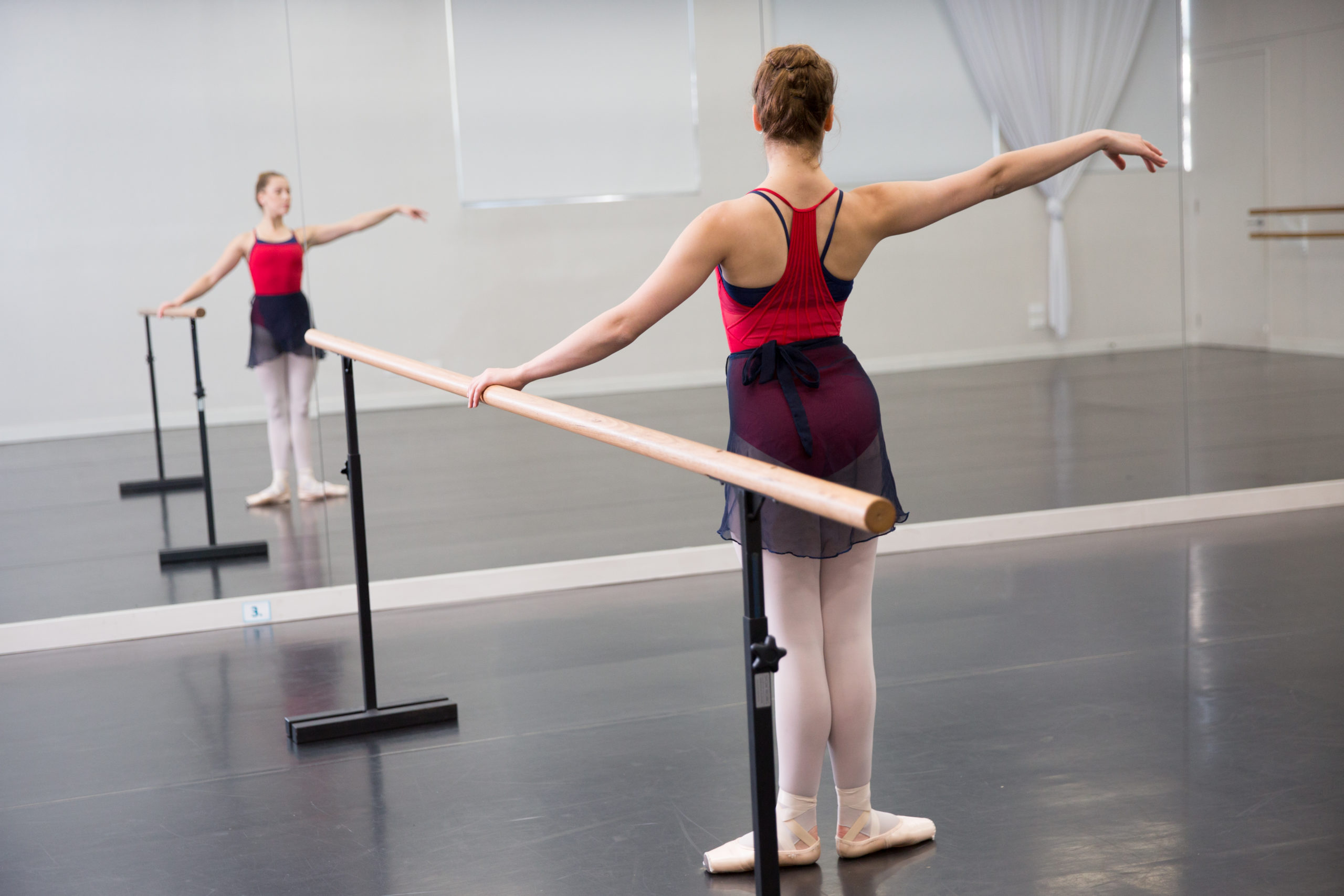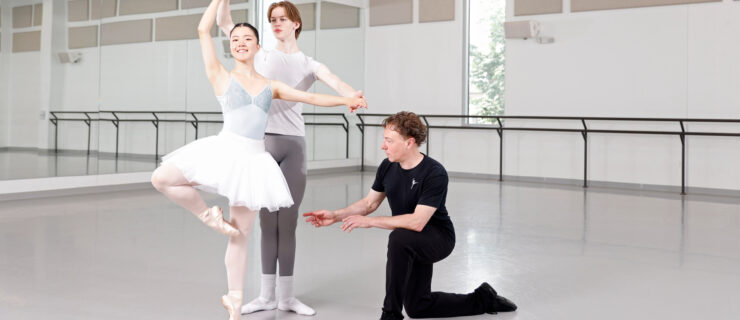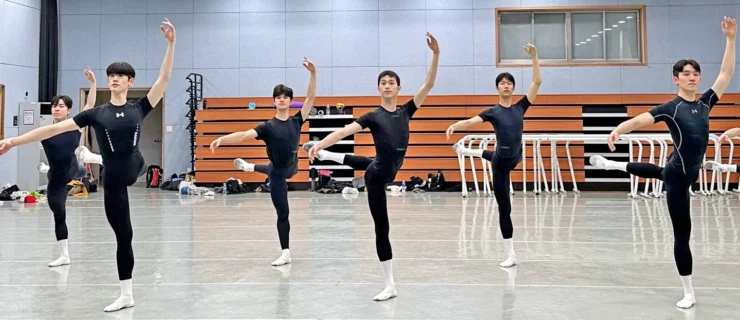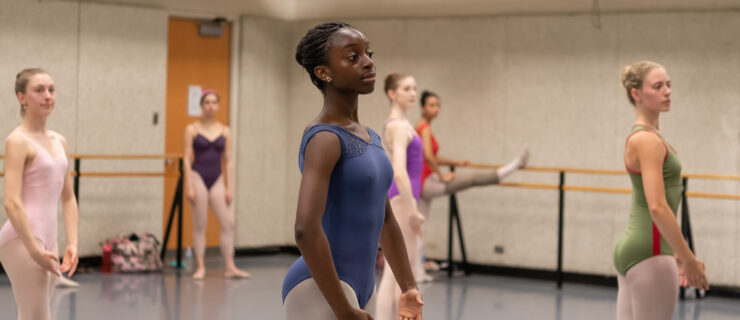How to Find Motivation When You Realize You Need More Advanced Training
In her early teens, Claire Solis was a top student in her small school in upstate New York, and she had big ambitions. “There was never a doubt in my mind that I was going to be a principal dancer,” she remembers. Confident in how her future would play out, she convinced her parents to let her move away from home at 16 to train full-time at The Rock School for Dance Education in Philadelphia. But reality hit when she was placed with students three years younger than her. She had a solid technical foundation, but she hadn’t been able to train as many hours a week as her peers and needed to catch up. “I felt shattered,” she says. Solis wondered if she’d been deluding herself about her dreamt-of career.
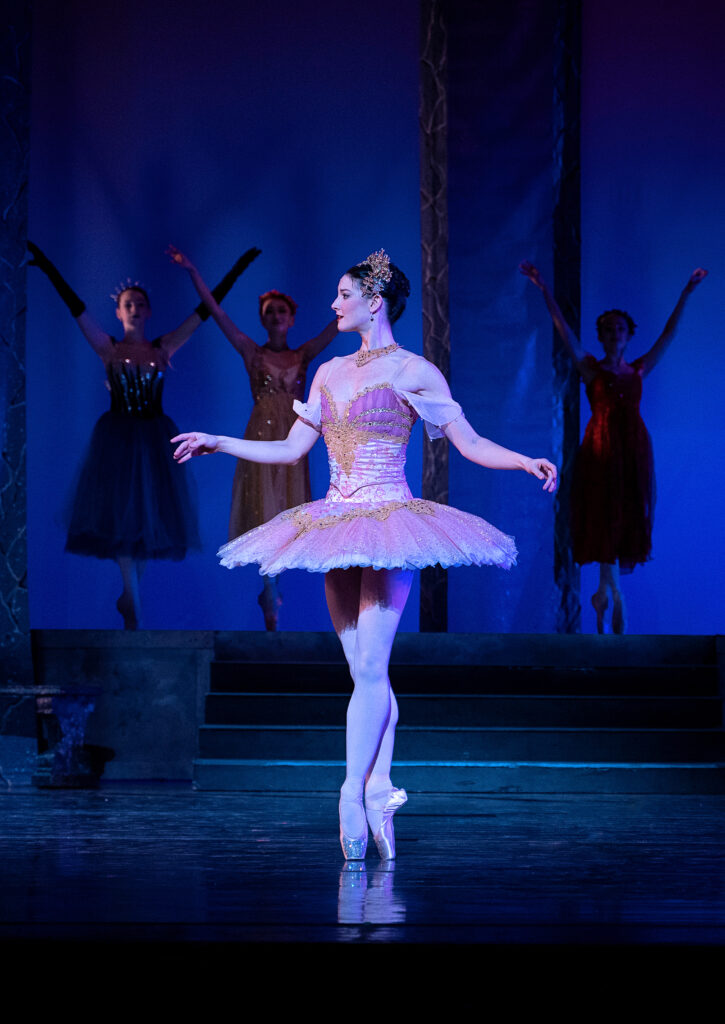
But Solis’ sense of defeat was temporary. With determination, hard work, and the help of her teachers she was winning top prizes at Youth America Grand Prix within two years. Soon after, she joined The Washington Ballet and went on to perform on Broadway. Today, as a dancer with Syracuse City Ballet, she reflects on how she kept herself from giving in to despair as a behind-the-curve teenager. “I told myself, ‘This has to be all-in—I have to try with everything I have.’ I was determined to figure out what I needed to do and not wallow.”
Being among the best in your class at a smaller or relatively isolated school breeds confidence and ambition. But jumping from your studio’s “small pond” into the oceans of the ballet world—whether it’s attending a competition, an audition for a more prestigious academy, or a master class—can be eye-opening, especially if dancing alongside others your age reveals deficits in your training, skill level, or strength. While this realization can be overwhelming, it doesn’t have to derail you—and it shouldn’t. By allowing the experience to motivate you and committing to hard work, your goals can still be within reach.
Acknowledge Where You Are
Entering a high-talent setting is intimidating, especially if you’re surrounded by dancers with more experience or better training. Acknowledging how you measure up is necessary but doesn’t have to make you feel inferior. In fact, maintaining your self-worth is crucial for turning the situation into a positive one.
Francisco Gella, artistic director of Francisco Gella Dance Works, sees inexperienced students in his workshops freeze out of fear and insecurity, especially if they are unfamiliar with the vocabulary, which prevents them from getting the most out of the classes. “Their body language changes, they look like they want to hide,” he says. “But that’s a very limited approach to class. They may think they are dancing full-out, but it looks like they’re marking.”
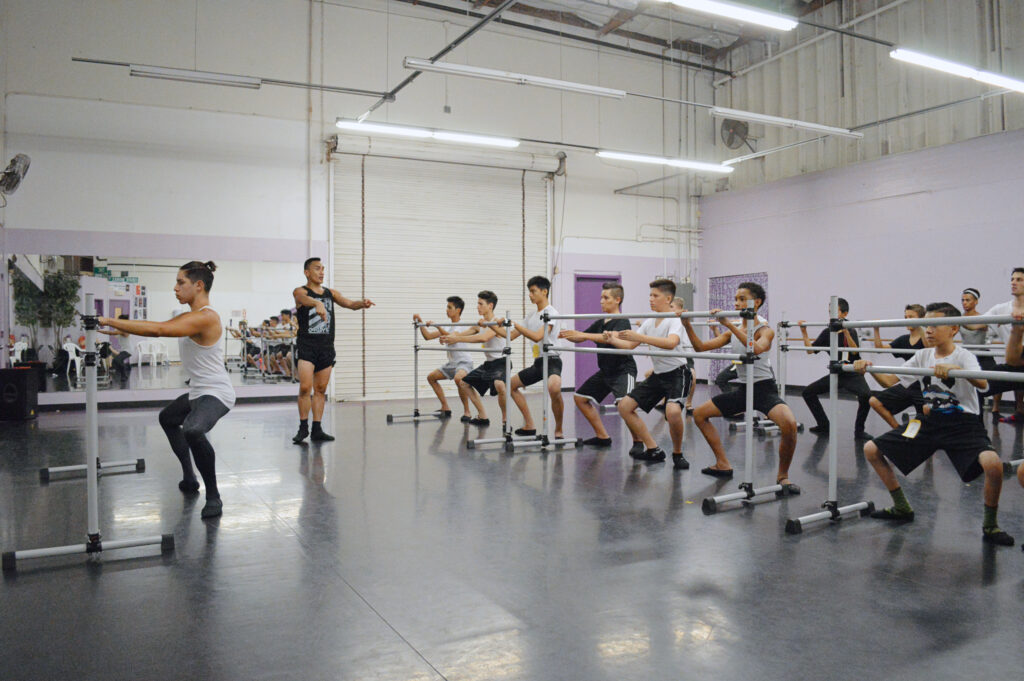
You may not be able to catch up instantly, but you can get there faster by remembering why you’re in this setting to begin with—to improve yourself—and shedding any feelings of inadequacy. Gella encourages dancers to keep engaging in class. “The number one thing is to not feel marginalized or ‘other’ just because you haven’t had access to this kind of training where you live,” Gella says. “You’re here because you want to have exposure and learn more, and being here addresses those issues.”
Self-Assess
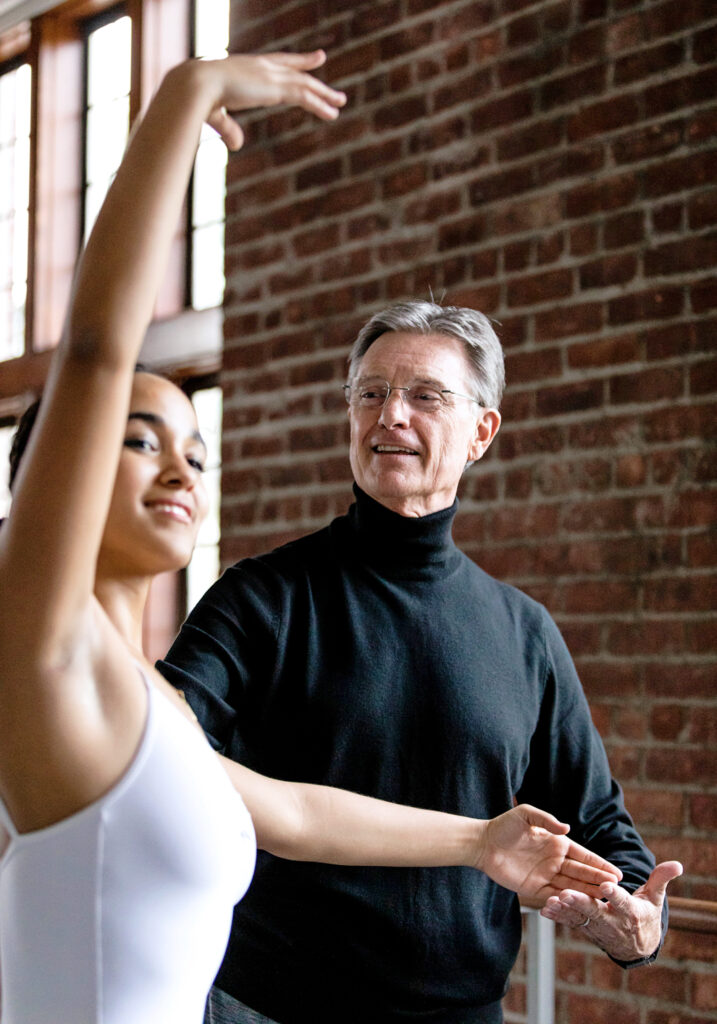
You may initially find it hard to stay positive by fixating on the steps you can’t do or how insecure you feel. Recognize your feelings, but then step back and do some self-analysis. “If you let the negative emotional reaction to the big pool you just entered overwhelm you, it’s going to be really hard to face what you need to do in order to improve,” says Vassar College professor John Meehan, the jury chair of the 2023 USA International Ballet Competition and former artistic director of American Ballet Theatre’s Studio Company. He reflects on his own time as a dancer: “I think if I’d been less emotional and more dispassionate about improving when I saw people who were better than me, I could have had a much better career.”
So how can you ascertain exactly where you need improvement? Watch the dancers around you whose skills or qualities seem more developed than yours, says Pacific Northwest Ballet School faculty member Marjorie Thompson. Try to discern what it is about them that you admire. “Is there something you can learn from this other dancer’s style, work habits, or demeanor that you think might be worth exploring as you approach your continued studies?” she asks.
Seeking out feedback from teachers, coaches, or judges who are seeing you in this setting is another great way to clarify what you need to do to progress. “Don’t be afraid to speak up,” says Thompson. “Reach out to a teacher you sense will go the extra mile with you and ask, ‘I’m not doing as well as I thought I was going to do. What are you seeing? What can I do? Can you help me?’ ”
Be Proactive
Allowing your self-assessment to turn into renewed motivation and commitment can be the key to major progress. This might mean addressing shortcomings in your training environment, says Gella. “If you’re returning to a place with less access to high-level training, it becomes an issue of making a life change to increase that access, but not everyone has that option,” he says. In that case, stick with your established situation with an eye towards your next opportunity for growth. “Look forward to your next summer intensive, or competition, or master class, when you can have that access again. And next time you go back, hopefully you will have maintained what you learned and won’t be so intimidated.”
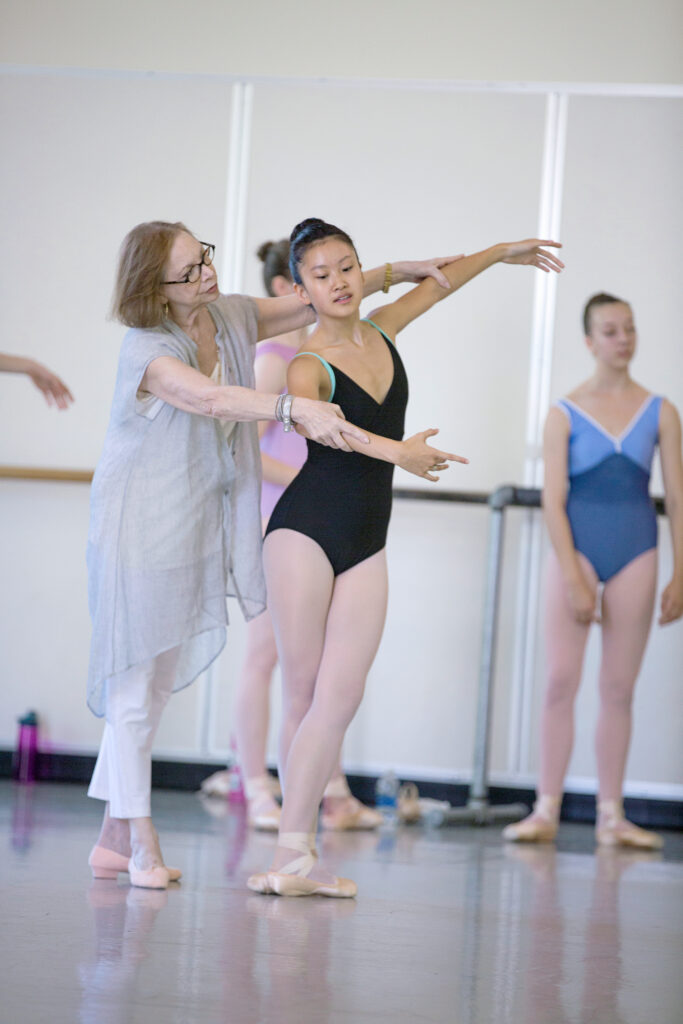
Whether you’re heading back home or staying in the “big pond” like Solis did, taking steps to amplify your training is critical. Thompson suggests augmenting ballet classes with Pilates, conditioning, even seminars on nutrition, to get as much information and strength as you can. Talking to other dancers to find out how they got to where they are now can also be helpful; maybe they were once in your shoes.
As for Solis, once she got over her feelings of defeat, she doubled down on her efforts to catch up. On breaks, she watched the upper-level classes (which were full of kids her own age) to see what she was aiming for, did cross-training on her own, and watched ballet class videos online. She worked hard to adapt to the variety of styles (Vaganova, Balanchine, Bournonville, Cuban) offered at The Rock School. “I basically tried to learn as much as I could from everyone I could,” she remembers. “Even if it felt embarrassing because I was behind and I was older, I put myself in the front of the room every day.”
In moments of uncertainty, remember that no matter how small of a pond you came from, your talent, drive, and work have already gotten you far. Tenacity, self-worth, and even a bit of stubbornness will keep you progressing from there. “The reason you went out from your little pond was to learn more, to improve upon yourself,” says Thompson. “It’s supposed to be a growth experience, so use it for what it is.”
For Solis, trusting her instincts got her through those challenging years. “As cliché as it sounds, I just knew I was supposed to dance. Even when I thought, ‘I don’t have turnout, everyone is better than me, I don’t get the combinations as fast,’ I knew that this was what I was meant to do, and I was going to keep trying.”
